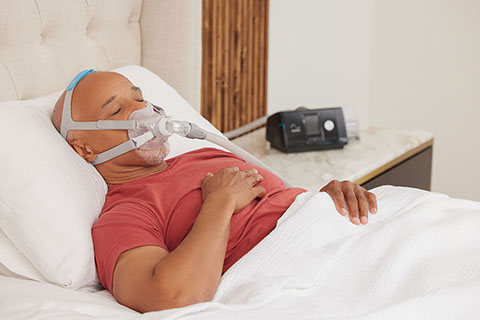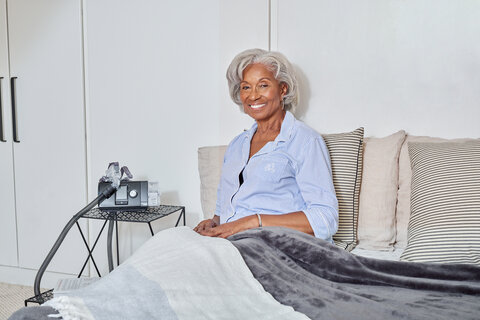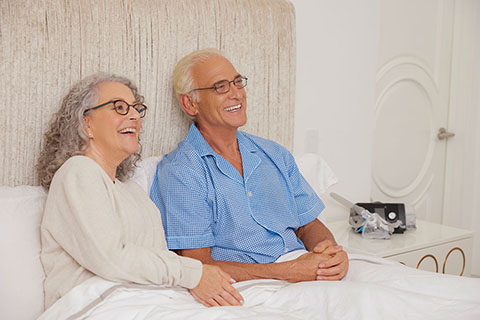To help you make the most of your device and get the restful night's sleep you deserve, follow these CPAP and Bilevel tips and tricks:
- Keep it clean Your CPAP or Bilevel device consists of various parts, including the filter, hose, and mask. To keep your PAP device working at its peak, you need to regularly clean and replace these parts. Otherwise, they can collect mold and germs, which can lead to additional health complications. To clean your parts properly, soak them in a tub or sink using a mixture of mild soap and warm water. For best results, clean these parts each week and replace the filter following the manufacturer’s recommendations.
- Find the right fit One of the most common struggles users face is finding a mask that fits properly. When you talk to your practitioner about your device, share your sleep patterns and see what they recommend. Also, adjust the fit of your mask to ensure it will not slip off or pinch your face while you sleep. With a bit of trial and error and some guidance from your practitioner, you'll find a solution best suited to the way you sleep.
- Sanitize your living area Keeping a clean sleeping space is essential to getting a good night's sleep. Dust, pollen, and other respiratory irritants can build up and get into your airways during the night. That can impact your breathing and make it harder for your CPAP or Bilevel device to help your apnea symptoms. Regularly change your bedding and sweep and wipe down surfaces in your home, especially during allergy season.
- Practice good sleep habits Make the most of your CPAP or Bilevel device by following behavior during the day that is conducive to a good night's sleep. Regular exercise is critical to a healthy lifestyle and can help your body wind down prior to bedtime. Avoid stimulants like coffee and alcohol before bed, as these can impair your ability to fall and stay asleep.
- Use a humidifier Using a CPAP or Bilevel every night often leads to chapped lips and a dry mouth or nose. These irritants can make you more reluctant to use your device at night. If your device does not have a built-in humidifier, consider buying a separate room humidifier to set up in your bedroom. They can be beneficial if you live in a cold or dry region, making your living space more comfortable in general.
- Be patient Despite its many benefits, a CPAP or Bilevel device can take time to get used to. Try wearing the mask around the house to get accustomed to it. The more you wear it, the less uncomfortable it will feel when you retire for the night. Getting a good night's sleep is vital to your overall health, so be patient and take time to adjust to using your CPAP or Bilevel device.


